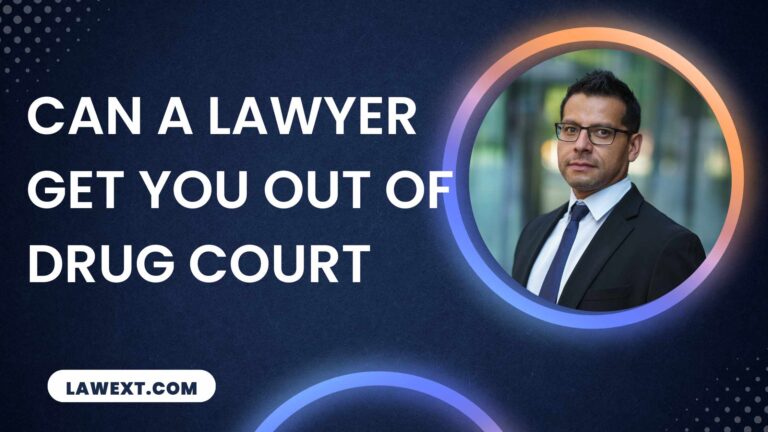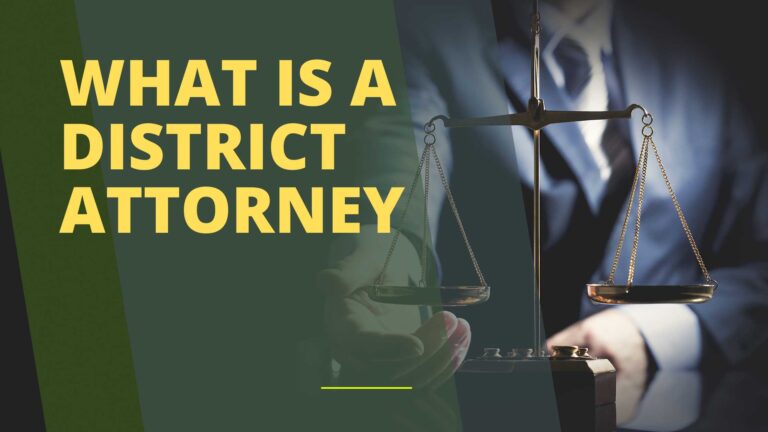Do You Need a Lawyer to Start an LLC?

No, hiring a lawyer is not mandatory to start an LLC; however, seeking legal advice is recommended for ensuring compliance and protecting your interests. Starting an LLC involves various legal requirements and complexities that may be best handled by an attorney, but it is not a legal requirement in itself.
Do You Need a Lawyer to Start an LLC? A lawyer can help you navigate through the formation process, draft and review legal documents, and provide guidance on compliance with state laws and regulations. Ultimately, the decision to hire a lawyer when starting an LLC depends on your comfort level and understanding of the legal aspects involved.
The Importance Of Legal Guidance
Understanding Legal Requirements
Starting an LLC is a significant decision that requires careful consideration and adherence to legal procedures. Understanding the legal requirements involved is crucial to ensure a smooth and trouble-free journey in establishing your business.
Legal requirements for forming an LLC may vary from one jurisdiction to another. However, some common aspects include:
Minimizing Legal Risks
Entrepreneurs often underestimate the potential legal risks they might face in the early stages of forming an LLC. By seeking legal guidance, you can minimize these risks and protect your business.
- Choosing the appropriate business structure: A lawyer can help you evaluate and select the most suitable legal structure for your LLC, considering factors such as liability protection, tax advantages, and ease of management.
- Complying with local regulations: A legal professional can guide you through the complex maze of local regulations and ensure that your business is compliant with all applicable laws.
- Protecting intellectual property: Lawyers can assist in securing patents, trademarks, and copyrights for your innovative products or services, safeguarding your intellectual property rights.
- Drafting contracts and agreements: A lawyer’s expertise can be invaluable in drafting contracts, agreements, and other legal documents that protect your interests and minimize legal disputes with partners, suppliers, or customers.
While hiring a lawyer may seem like an additional expense, their expertise can save you from costly legal battles down the road. It’s an investment in the long-term success and stability of your LLC.

Credit: www.findlaw.com
Navigating The Formation Process
When starting a Limited Liability Company (LLC), the formation process involves several essential steps. Navigating this process is crucial to ensure the smooth establishment of your business entity. From choosing the right business structure to drafting and filing formation documents, each step requires careful consideration and attention to detail. Let’s delve into the key aspects of the LLC formation process.
Choosing The Right Business Structure
Before diving into the LLC formation, it’s crucial to choose the right business structure that aligns with your goals and operational needs. This decision impacts various aspects such as taxes, liability, and management. Understanding the nuances of each structure, including sole proprietorship, partnership, corporation, and LLC, will help you make an informed choice.
Drafting And Filing Formation Documents
Once you’ve selected an LLC as the appropriate business structure, the next step involves drafting and filing formation documents. This includes preparing the Articles of Organization, Operating Agreement, and other essential paperwork. Accuracy and compliance with state regulations are paramount during this phase to ensure a seamless formation process.
Managing Legal Documents And Compliance
Managing legal documents and compliance for your LLC is essential, but hiring a lawyer may not be necessary. With proper research and understanding of the legal requirements, you can start an LLC on your own. Simplify the process by utilizing online resources and guides available to ensure compliance with legal regulations.
Managing Legal Documents and Compliance
Creating Operating Agreements
When starting an LLC, one of the crucial steps is creating an operating agreement. This document sets out the rules and guidelines for how your LLC will be run. It outlines the responsibilities and powers of the LLC’s members, as well as the distribution of profits and losses. While operating agreements are not required in all states, having one in place can help to avoid future disputes and conflicts. It provides clarity and allows for a smooth operation of your LLC.
Meeting Ongoing Compliance Obligations
Once your LLC is formed, it is essential to stay in compliance with the legal requirements. Failing to meet these obligations can lead to penalties, fines, or even the dissolution of your LLC. Some common ongoing compliance obligations include filing annual reports, paying annual fees, maintaining accurate records, and holding regular meetings with members and managers. Staying on top of these obligations is crucial for keeping your LLC in good standing with the state and avoiding any potential legal issues.
To ensure you fulfill your ongoing compliance obligations, hiring a lawyer can be beneficial. A lawyer can provide guidance and assistance in navigating the legal requirements specific to your state. They can help you understand what documents need to be filed, when they are due, and what information they should contain. This expert advice can save you time and stress in managing the compliance aspects of your LLC.
Additionally, a lawyer can assist with drafting and reviewing contracts or agreements that your LLC may enter into. They can ensure that these documents are legally sound, protect your interests, and minimize potential risks. Having a lawyer’s expertise behind you can give you peace of mind and help you make informed decisions when it comes to legal matters.
In conclusion, managing legal documents and compliance is an essential aspect of starting and running an LLC. Creating operating agreements and meeting ongoing compliance obligations are crucial steps in ensuring the smooth operation and success of your business. While it is possible to handle these tasks independently, seeking the assistance of a lawyer can help you navigate the complexities and ensure that you are meeting all legal requirements. Doing so will provide you with peace of mind and allow you to focus on growing and managing your LLC.
Protecting Intellectual Property
When starting a Limited Liability Company (LLC), protecting your intellectual property is crucial. Intellectual property refers to intangible creations of the mind, such as inventions, designs, logos, and creative works. Without proper protection, your valuable ideas and creations could be at risk of being copied or stolen by others.
Trademarks And Copyrights
Trademarks and copyrights are two essential forms of intellectual property protection. A trademark is a word, phrase, symbol, or design that identifies and distinguishes the source of goods or services. It helps consumers recognize and associate products or services with a particular brand.
Trademarks can be registered with the United States Patent and Trademark Office (USPTO) and offer several advantages. Registering a trademark provides nationwide protection, deters potential infringers, and allows you to use the ® symbol, indicating that your mark is federally registered.
A copyright, on the other hand, protects original works of authorship, such as books, music, art, or software. It grants the owner exclusive rights to reproduce, distribute, and display the work. Although copyrights are automatically granted upon creation, registering with the U.S. Copyright Office provides additional legal benefits and strengthens your protection.
Patents And Trade Secrets
Patents are granted to inventors, providing them with exclusive rights to their inventions. They protect new and useful processes, machines, compositions of matter, or improvements thereof. Obtaining a patent involves a detailed application process, including a thorough description of the invention and its technical aspects. Patents offer a limited monopoly, enabling inventors to exclude others from making, using, or selling their invention for a specific period.
A trade secret refers to valuable and confidential business information that gives a company a competitive advantage. Trade secrets can include formulas, manufacturing processes, customer lists, or any other proprietary information that is not publicly known. Unlike patents, trade secrets are not publicly disclosed and can last indefinitely as long as they are kept confidential.
To protect your intellectual property and ensure compliance with the law, it is advisable to consult with an experienced intellectual property attorney. An attorney can help you navigate the complexities of trademark, copyright, patent registration, or trade secret protection, giving you peace of mind and safeguarding your valuable creations.
Handling Disputes And Legal Issues
Resolving Contract Disputes
When it comes to handling contract disputes, having a lawyer for your LLC can be invaluable. Lawyers are equipped to navigate complex contractual disagreements and ensure that your company’s interests are protected. They can carefully review contracts, negotiate terms, and represent your LLC in mediation or litigation if disputes cannot be resolved amicably.
Addressing Employment Matters
Employment matters such as disputes with employees, wrongful termination claims, or discrimination issues can be legally challenging. An experienced lawyer can provide critical guidance, ensuring that your LLC complies with employment laws and prevents potentially costly legal pitfalls. They can also represent your business in negotiations and disputes, safeguarding your company’s reputation and operations.

Credit: www.wolterskluwer.com
Conclusion
Hiring a lawyer for starting an LLC can provide valuable legal guidance and protection. While it’s not mandatory, legal advice can help navigate complex regulations and ensure proper documentation. Ultimately, the decision to engage a lawyer depends on your comfort level with legal matters and the complexity of your business structure.
Amelia Justiceberg, a distinguished legal luminary, thrives on the intersection of empathy and legal acumen. As a prominent family law attorney, she orchestrates compassionate resolutions amidst complex dynamics. Justiceberg's courtroom finesse and dedication to fairness define her practice. Beyond litigation, she ardently advocates for social justice, solidifying her reputation as an influential force in the legal landscape.






